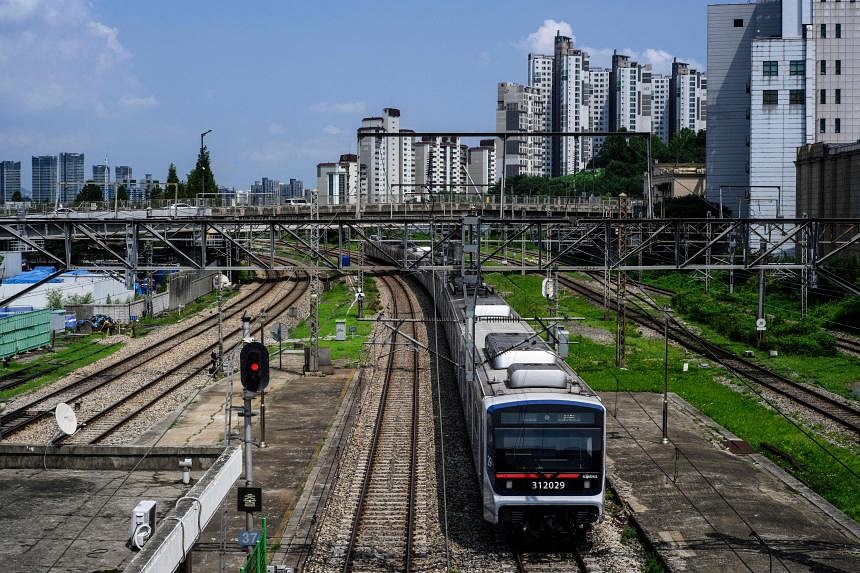Quench the thirst for brand awareness
The naming initiatives have attracted significant attention across industries, with many companies viewing shared naming rights for subway stations as an effective form of outdoor advertising.
CJ Olive Young’s decision to acquire the rights to Seongsu Station was part of the company’s efforts to capitalize on the recent increase in young and foreign visitors to the Seongsu area.
In 2023, the Seongsu area attracted more than 36 million visitors, according to government data. During the same period, Seongsu Station recorded an average visitor traffic of 78,018 people per day, an increase of 14 percent from 67,849 the previous year.
In the first half of 2024, the number of foreign visitors – important customers for the beauty retailer – in the Seongsu region more than quadrupled from 75,669 to 371,596 compared to the previous year.
“CJ Olive Young has entered the tender as part of preparations to open a new branch near Seongsu Station. Detailed discussions are ongoing with Seoul Metro,” said a CJ Olive Young official. In addition to the planned opening of a new branch later in 2024, the company already operates four branches in the Seongsu area.
Medical providers and universities that have acquired joint naming rights for subway stations in Seoul expressed similar views on the effectiveness of these stations.
“We believed that having our school’s name featured in station announcements and on subway maps would enhance our promotional efforts. We viewed this as a valuable marketing opportunity,” said an official at Shingu College, which has owned the rights to Dandaeogeori Station, located near the school in Seongnam, Gyeonggi Province, since 2016.
Public vs. private interests
However, the initiative to commercialise shared naming rights for subway stations has sparked controversy. There are fears that allowing private interests to influence naming could undermine the public nature of a public good such as the subway.
“The subway is a public good, but under the current concept, there is a risk that it will become a promotional tool for private companies,” said Kim Woo-cheol, a professor of tax accounting at Seoul University. “In addition to fare adjustments, policies such as free rides for seniors also need to be changed to reduce the deficit.”
Park Min-hee, 42, a Seoul resident who lives near a subway station whose naming rights were sold to a nearby eye clinic in 2022, expressed similar sentiments: “Seeing the names of establishments that are less relevant to the local community displayed on subway station nameplates feels like it is damaging the region’s identity and culture.”
To address growing concerns about whether the initiative to sell the naming rights is in the public interest, Seoul Metro limited participation in the tender announced in July to companies whose place of business is within one kilometer of the respective station and which do not raise concerns about public morality.
“We are considering introducing stricter standards for next year’s program to ensure that public interest is not compromised and regional identity is maintained,” the Seoul Metro official added. THE KOREA HERALD/ASIA NEWS NETWORK

